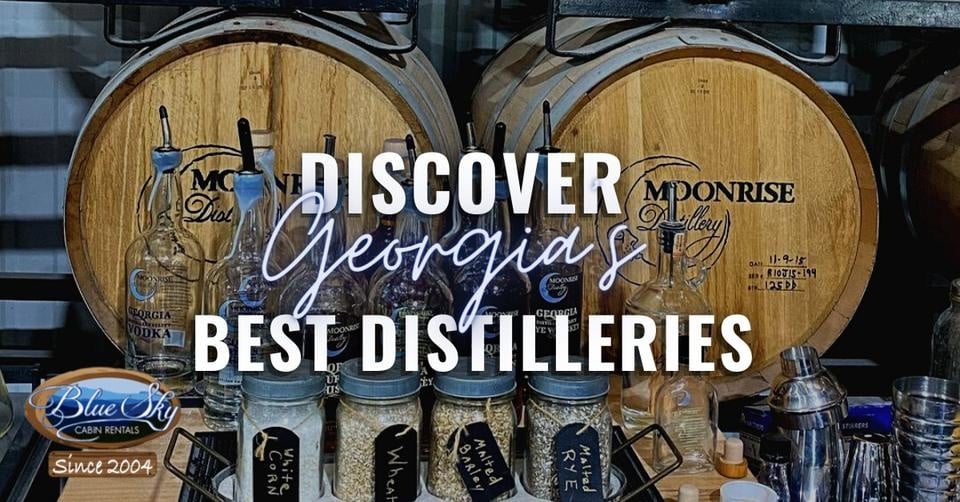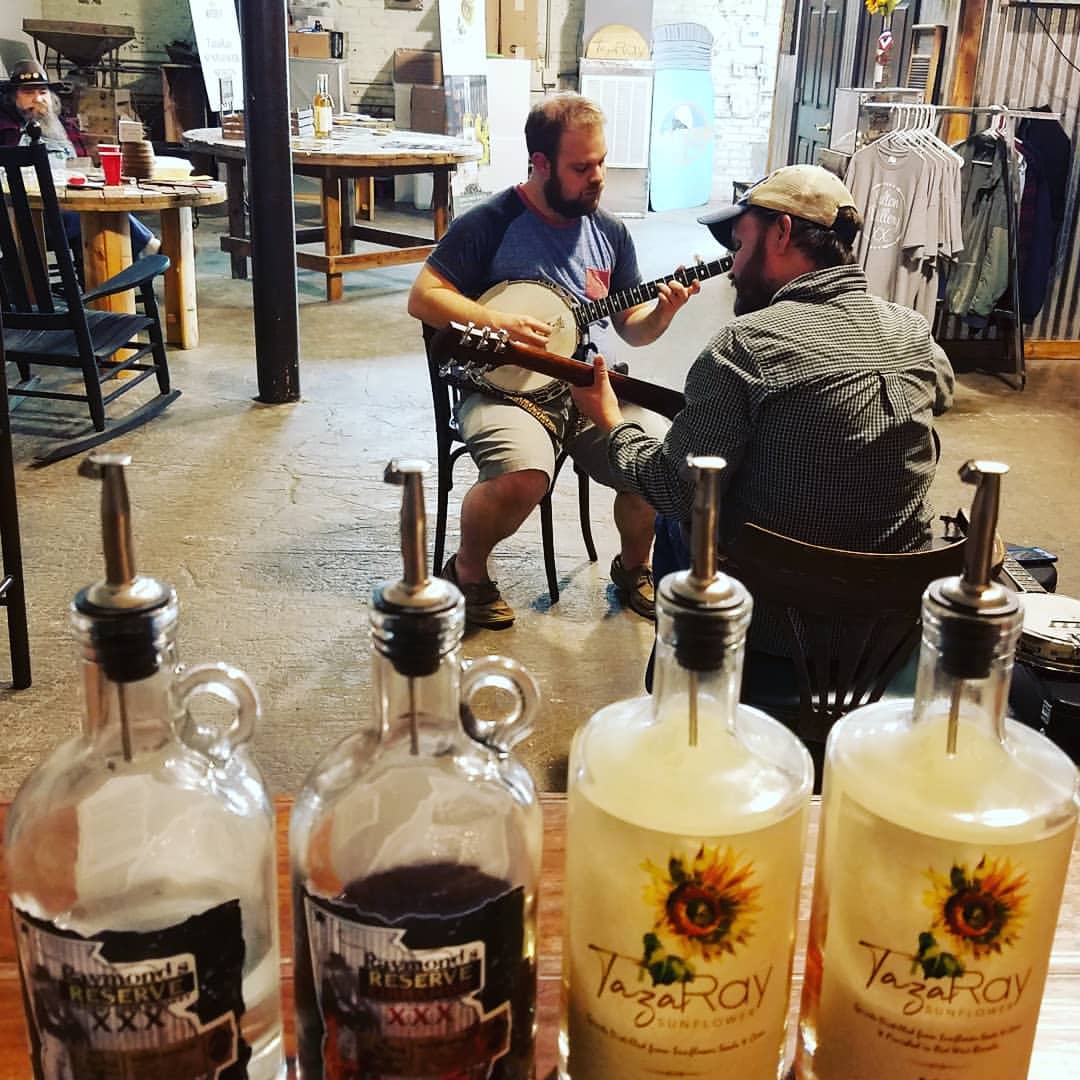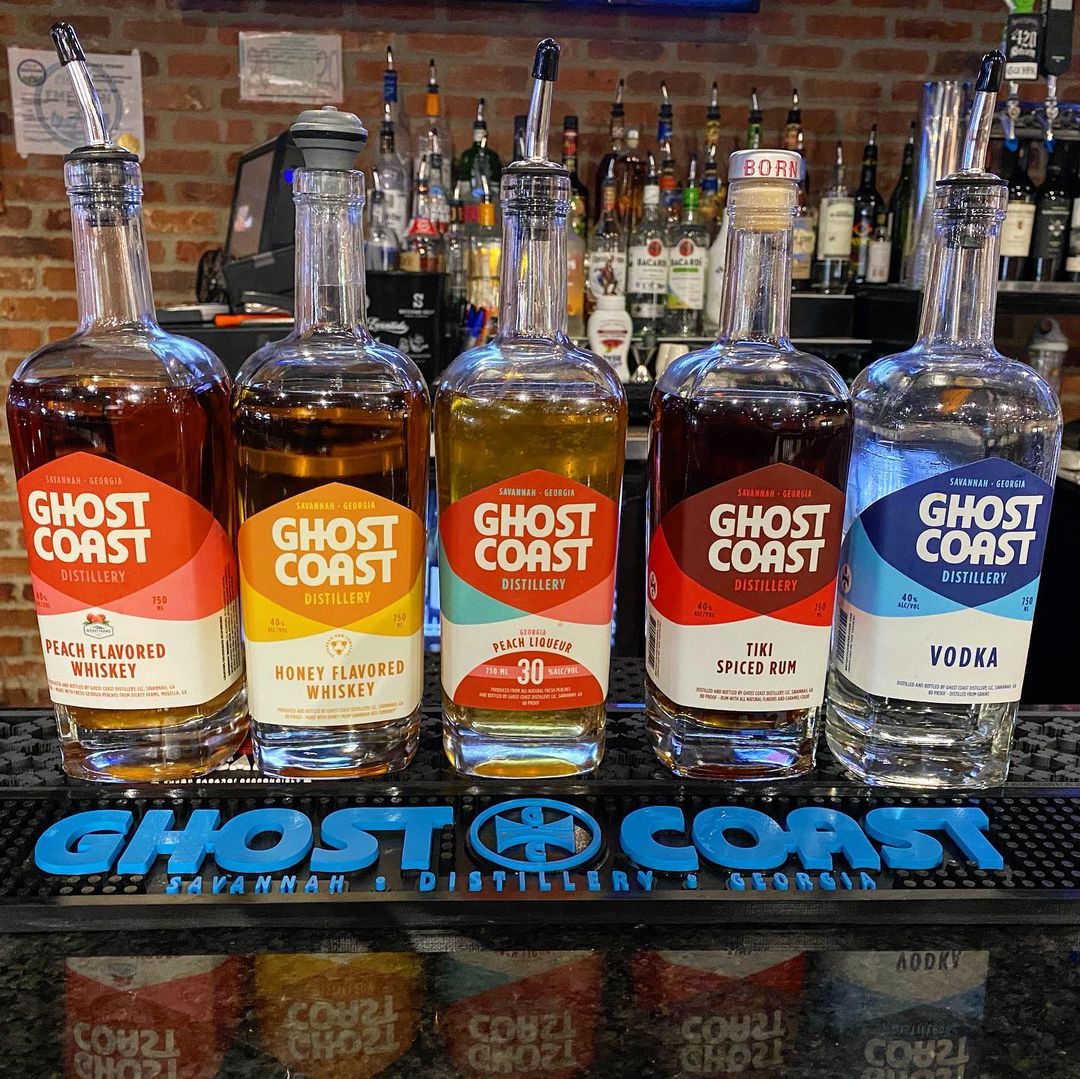Moonshine: Discover Georgias Best Distilleries

It doesn't matter if you call it hooch, mountain dew, white lightning, or moonshine - the history of illegally distilled liquors in the United States is filled with stories of rebellion, car chases, gunfights, and for some, even death.
Bootlegging in Georgia dates all the way back to 1732 when the first colonists to inhabit what was then the Colony of Georgia came ashore. The Royal Charter creating the colony expressly prohibited the importation of intoxicating liquors and distilled spirits, this was the only colony subject to this prohibition at the time, and considering the colonists brought along nearly 10 tons of Alderman Parson’s Best Beer with them, it's fair to assume that most, if not all, of the new colonists, had no intention of abiding by such a law.
Once the beer ran out the bootlegging began. Liquor was brought in from other colonies, the Bahamas, Cuba, and even as far away as Europe. Of course, bringing in liquor from far away was expensive and could potentially lead to legal problems or worse for those that were importing spirits. It didn't take long for illegal stills to start popping up in Georgia.
A few things are essential for an illegal distillery to be successful: cool clean water, plenty of places to hide stills, and a demand for alcoholic beverages. Georgia is and was home to all three of these essentials. From the mountains of northern Georgia to the lowlands and marshes in the south there is no shortage of ideal locations with cool running streams perfect for setting up stills that would be hidden from the eyes of the law, and it seems that so long as there are people around, demand will be plentiful. As the population spread west new illegal distilleries seemed to pop up just about everywhere.
During the Civil War, local distillers were operating legally and were revered for their craft by many Georgians. This, of course, didn't last long and once Georgia was readmitted to the Union they were subject to the new federal tax laws on luxury items like tobacco and liquor. Distillers had no intention of paying these taxes and instead ran their distilleries illegally at night. Since this liquor was made under the light of the moon, the product was nicknamed moonshine.
The newly formed Internal Revenue Service (IRS) was in charge of collecting taxes on liquor and that included moonshine. Revenuers pursued these illegal distillers aggressively and as time went on the moonshiners and bootleggers found new and complex ways to move their product. When prohibition was enacted in 1920, Georgia already had a thriving moonshine production industry and years of practice avoiding and outrunning the revenuers. Producing high quality moonshine is an art, but getting the product from the distillery to distribution points is its own special skill, and there was no shortage of men and women wanting to prove they were the best.
As technology improved so did the craft of moonshining and bootlegging. Boats and horses gave way to automobiles as the prime means of transporting illicit goods. They were faster and allowed for more places to hide the product. Of course, revenuers had access to automobiles too and this led to an infamous cat-and-mouse game between the moonshiners and tax collectors that peaked in the 1930s and 1940s in the North Georgia mountains. Faster cars and better driving skills meant a better chance at avoiding the law. Bootleggers were chosen for their skills behind the wheel and auto mechanics were employed to squeeze every last bit of horsepower out of the vehicles they used to run their product. Some even went as far as altering the suspension to make the vehicle appear to be carrying a lighter load than it actually was and creating hidden compartments to hide the moonshine they were running.
This new skill of driving souped-up cars eventually led to the creation of NASCAR. It's often been said that the very first auto race happened the first time two cars were on the same road. What they don't tell you is the sport of auto racing traces its roots directly to the moonshiners and bootleggers of the 1930s and 1940s.
These days things are different in Georgia and legal moonshine distilleries are showing up all over the state. While these distilleries pay their taxes and running from law enforcement isn't necessary any longer, they still produce a product that uses the same recipes, distillation process, respect, and time-honored traditions of moonshiners from the past.
Georgia is now home to more than a dozen distilleries and with the growing popularity and taste for good old moonshine, the industry is growing at a rapid pace. Most if not all distilleries are open to the public for tastings and sales. Don't worry you won't have to hide those mason jars or outrun the revenuers on your way home.
Distilleries Near Your Cabin
Grandaddy Mimm's Distilling Co.
.jpg)
Photo Credit: grandaddymimms via Instagram
112 Wellborn St, Blairsville, GA 30512 • (706) 781-1829 • https://www.mimmsmoonshine.com
Located in downtown Blairsville, Grandaddy Mimm's produces its own array of spirits including moonshine and vodka. Founded by Tommy Townsend, the great-grandson of one of the state's original moonshiners - Jack "Mimm" McClure - this is a location that takes tradition to heart. Products offered range from the light and sweet flavors of Wild Cherry Cobbler and Apple Brown Betty to the Mule Kickin' 140 (which signifies the 140 proof rating). Distillery tours are offered daily. Be sure to check for special events during your visit, as Grandaddy Mimm's doubles as a concert venue!
Dalton Distillery

Photo Credit: dalton.distillery via Instagram
109 E Morris St, Dalton, GA 30720 • (706) 483-2790
The Butlers are keeping the family business thriving in Dalton! The same moonshine that Grandpa Alvin created more than a century ago is behind the recipe used by Master Distiller Raymond today to create Raymond's Reserve, a modern-day signature Georgia moonshine. Beyond the 'shine, Dalton Distillery has also created a gluten-free, sunflower seed-based bourbon only available in Georgia and Tennessee. Tours and tastings are offered every day but Sunday.
Other Georgia Distilleries

Photo Credit: ghostcoastdistillery via Instagram
- ASW Distillery 199 Armour Dr NE c, Atlanta, GA 30324 • (404) 590-2279 • https://www.aswdistillery.com
- Distillery of Modern Art 2197 Irvindale Way, Chamblee, GA 30341 • (404) 482-2663 • https://distilleryofmodernart.com
- Ghost Coast Distillery 641 Indian St, Savannah, GA 31401 • (912) 298-0071 • https://ghostcoastdistillery.com
- Hope Springs Distillery 4839 Railroad Avenue Suites D & E, Lilburn, GA 30047 • (770) 861-6397 • http://www.hopespringsdistillery.com
- Independent Distilling Company 731 E College Ave, Decatur, GA 30030 • (678) 576-3804 • http://www.independentdistilling.com
- Lazy Guy Distillery 2950 Moon Station Rd, Kennesaw, GA 30144 • (770) 485-0081 • http://lazyguydistillery.com
- Old Fourth Distillery 487 Edgewood Ave SE, Atlanta, GA 30312 • (844) 653-3687 • https://o4d.com
- R.M. Rose & Co. Distillery 890 Franklin St, Dillard, GA 30537 • https://www.rmroseco.com
- Richland Distilling Company 355 East Broad St, Richland, GA 31825 • (229) 887-3537 • https://www.richlandrum.com
- Still Pond Distillery 1575 Still Pond Rd, Arlington, GA 39813 • (800) 475-1193 • https://stillpond.com
- Swamp Fox Distilling Company 110 Mc Duffie St, Buena Vista, GA 31803 • (229) 314-6965 • https://swampfoxdistillingco.com
- Thirteenth Colony Distillery 305 N Dudley St, Americus, GA 31709 • (229) 924-3310 • https://www.thirteenthcolony.com
